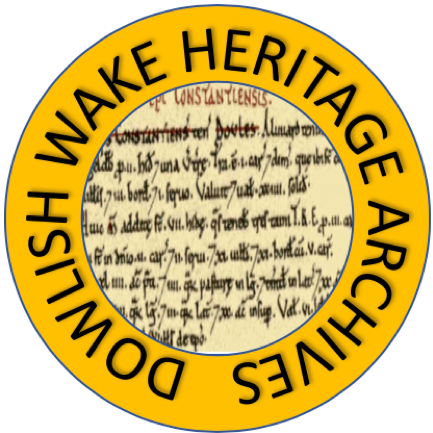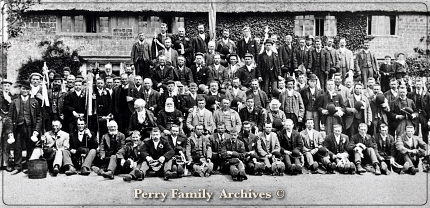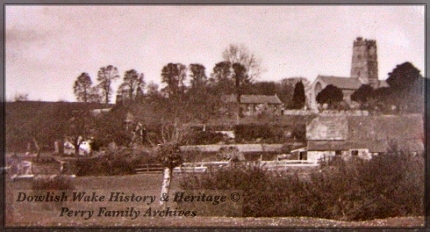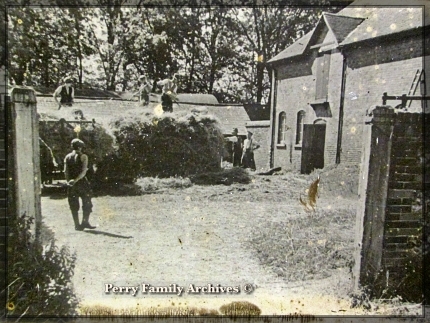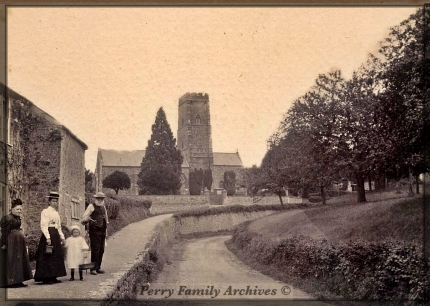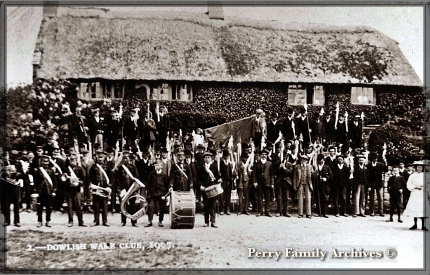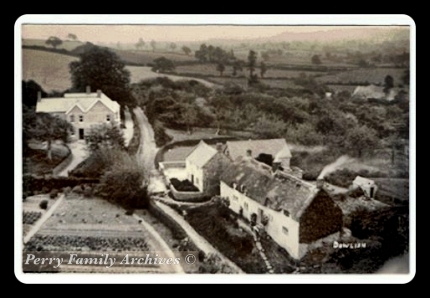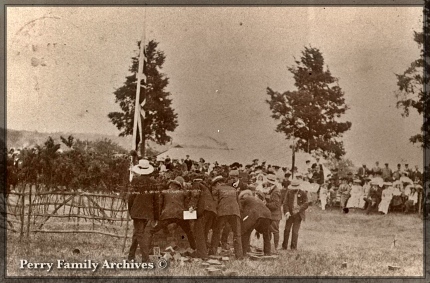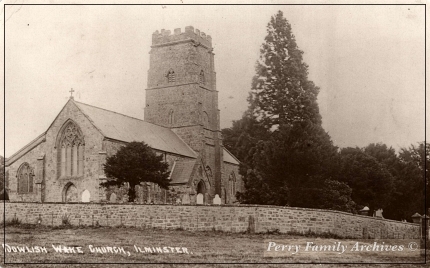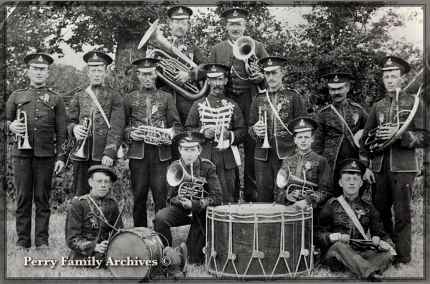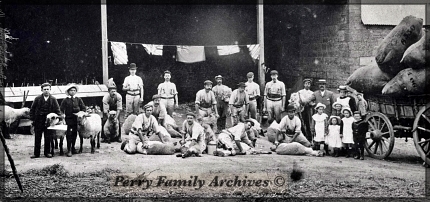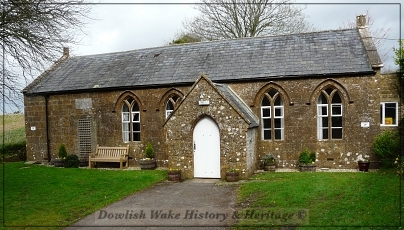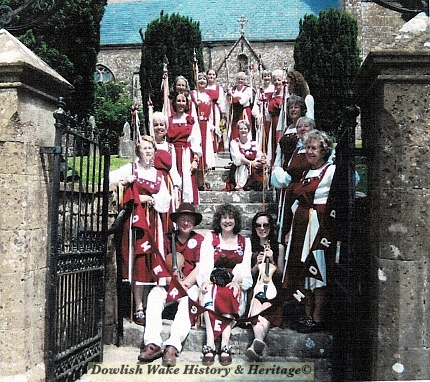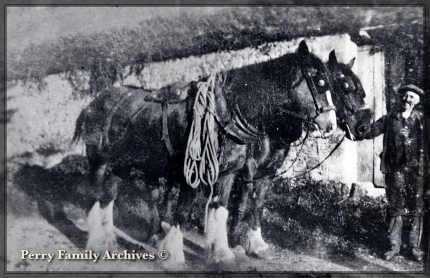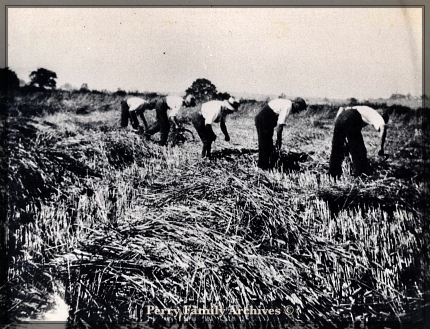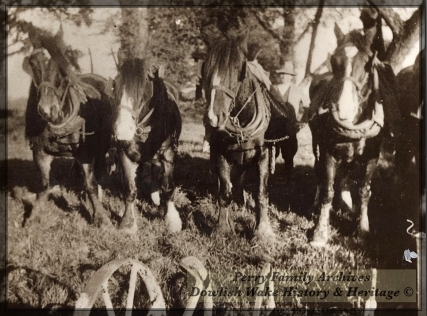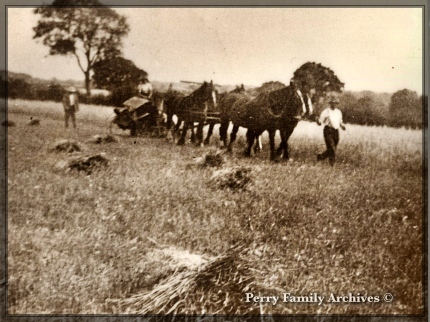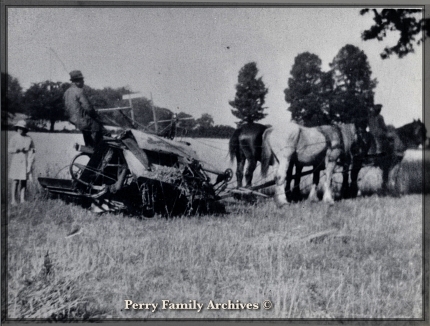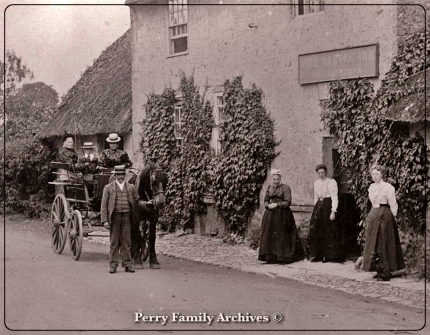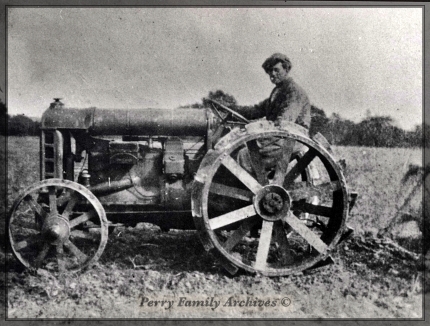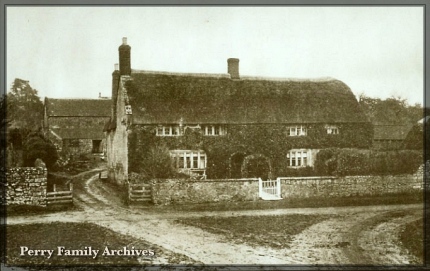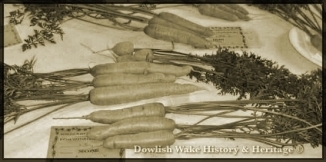Village Clubs & Mutual Aid.
- Socialising, rules, regalia and merriment.
- Voluntary subscriptions for 'times of need' with food on their tables from field garden land.
- Refreshments on the annual 'club walk' then a slap-up meal with speeches.
Friendly Societies found in villages up and down the country since the nineteenth century. Mutual self-help clubs giving village labourers some form of financial protection and improve their condition by cultivating their rented field-garden. Regular meetings, a yearly festival, together with weekly subscriptions accumulating funds. All were providing the village labourers with fellowship and notably a much-needed financial safety net. Government Acts of 1793 & 1875 had encouraged communities to form mutual support clubs. The acts set out a suggested structure; committee, treasurer, secretary, rules and regulations, drawn up and submitted to the local Justice of the Peace. Proper auditing and registration, thereby ensuring voluntary subscriptions would be available in times of need. Insurance against sickness, accidents, old age and funeral expenses, along with provision for widows and children of deceased members. The 1793 bill expected that such a fund would; "Likely to be with beneficial effects, by promoting the happiness of individuals and at the same time diminishing the public burthens". So, more self-sufficiency and less drain on the guardians of the poor and the parish purse.
Like many of these clubs, the two Dowlish Wake clubs we will look at here were open to men only, but women too had their clubs and societies. Locally the Ilminster Female Friendly Benefit Society, 1839-1896. Villages, Coombe St Nicholas and Winsham, had Friendly Societies with male and female members. The ladies of Honiton had formed a Lace-makers Society. Wives of the clergy led other Somerset societies for females. Their annual meetings perhaps more sophisticated, enjoying afternoon tea dances with their obligatory speeches.
In Dowlish Wake, two mutual clubs become established, one to put produce on the cottage table, the other, DWFS, to ensure some measure of financial security for rainy days. Locally, providing a workable example,was Donyatt, who by 1791 had some 86 labourers each paying 2d a week into a common fund. Inspiration
perhaps then to Dowlish Wake. It was evident that the goodwill of landowners, employers and labourers were required. It was some years later, in 1834, that William Speke became instrumental in the setting up of the Dowlish Wake Labourers Friend Society, soon followed by other employers' such as Lord Bridport and Lord Poulett.
These schemes encouraged labourers to grow vegetables for their family in a rented field-garden allotment system. So it was that in the year 1834, William Speke allotted 8 acres of his land to several Dowlish Wake parish labourers to rent. The field-garden plots to be cultivated by 'spade husbandry alone', in their leisure hours, without 'interference' of their usual daily labour. They were allowed to grow potatoes and vegetables but no grains and told to manure a third of their plot each year.
Records from 1834 show this field-garden village club was part of a district initiative, the Chard, Ilminster and Crewkerne Labourers Friend Society [founded in 1832]. Therefore, members competed and exhibited their best produce with a larger audience. The venue for the annual meeting held in a local hotel November or 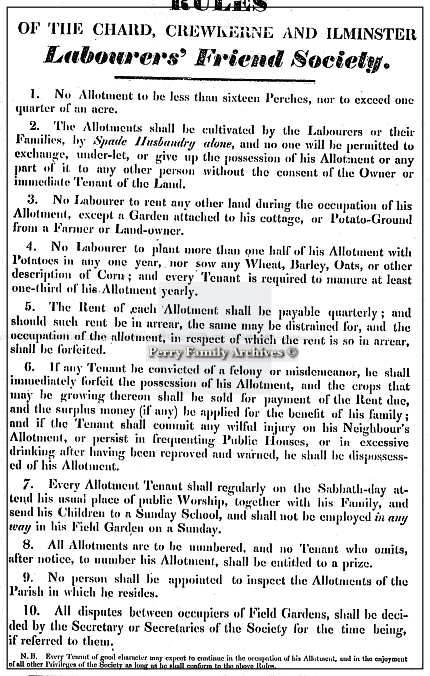
Farm labourers were tending their allotment at dawn and then again at dusk. Some landowners had initially worried about this. That their men would have not sufficient energy to also complete a full days' labour. However, generally, that fear was unfounded as it was considered the men and their employers benefited from the rewards of their industry. After the annual prize-giving and dinner came the speeches, many somewhat lengthy but members receiving much praise and encouragement. The gentry, landowners and club secretaries spoke of the fostering of their good habits and "affording profitable occupation of otherwise leisure time", the meaning, of course, less time in the ale or cider house.!
By 1886 allotments were being looked at by Parliament. A bill to make the provision of nationwide allotments for the working classes compulsory by legislative enactment. Transferring powers from the local Government Board to the County Councils, existing society members encouraged to become associate members. The end for the DW Labourers Friend Society seems to have been around 1889. However, present-day villagers can remember hearing of the existence of village field-allotments in the early 1900s. Perhaps right up to the sale of the Speke estate in 1921.
The second club we look at is the Dowlish Wake Friendly Society which had its beginnings in 1837. By the year 1865, the club had 147 members and a fund of £289 9s 11d. Members were joining from nearby villages, Kingstone, Chillington, Cricket Malherbie and Cudworth. Compared with other villages, this club in Dowlish Wake was hugely successful and continued into the mid-1950s.
Both the Dowlish Wake clubs held meetings in the village reading room and school-rooms [Speke Hall] over the years. The DW Friendly Society members were paying their dues, 6 pence a week, knowing they would
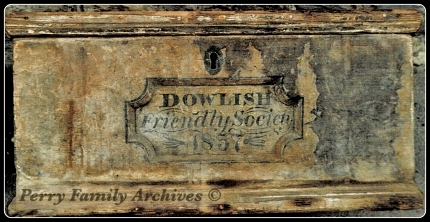
The Friendly Society came into its own in times of need, as demonstrated here for one member. In August of 1877, at harvest-time, Charles Russell [1820-1892], aged 57 years, fell from a ladder whilst climbing onto a rick at Cricket Malherbie. Following the accident, his injuries, including a broken leg, warranted him monetary help from the DW Friendly Society of which he was a member. Eligible to consult a doctor and a surgeon, Dr Mule and Dr Munden. Charles Russell was also eligible to receive 6 shillings a week for eight weeks, followed by three shillings a week for 25 weeks.
Agriculture labourers' wages were one and six shillings for boys and up to nine shillings for men. Sadly, Charles Russell was severely crippled and could never work again. He and his wife Mary had reared and provided for a huge family, some thirteen Cudworth born children. The family had lived at different times in Parsonage House, East farm, Ware farm and Cudworth village. At the time of his death, he was receiving 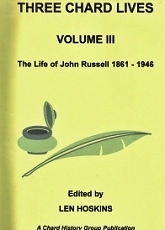
The pomp and ceremony of these club days illustrate the great pride taken in their regalia. The highlight of each year, the annual feast day and 'the walk', which would begin on a May morning at 6 am, a peal of bells ringing from the tower of St Andrews church. The men would meet together at 10 am, dressed in their best Sunday outfits, ready for "the walk'. The Dowlish Wake band was heading up the procession. Village photos show banners, staves, pole-heads, flowing ribbons and [blue] rosettes in button-holes. The wording of the Dowlish Wake Friendly Society club cloth banner: "Let Friendship Reign". The carrying of brass headed staves, a West Country tradition, bespoke club brass pole-heads mounted on 6-foot-long poles [staves]. The emblem on the brass finial for this village showing the initials DFS, proudly displayed on top, with a crown, suggests loyalty to the monarchy.
Visitors came from all around to enjoy the days festival. There would be cake stalls, swing-boats and amusements' set up in a field. In some years, floral arches constructed, strings of evergreens, bedecking the marquees, and blue flags flown from the church Tower. The village church bells tolled throughout the day. The Chard & Ilminster News reports in their 23rd of May edition of 1896: "In the evening a large company assembled and to the strains of the band happy couples tripped lightly over the green and wiled the time away. Others participated in sterner amusements, although an extended circle showed that kiss-in-the-circle had not lost any of its attractiveness. This particular year the scene was in a field near the New Inn, with a Kings Marquee erected by the Inns host, Richard Manning.
Traditionally, the Dowlish Brass Band heading up the 'walk', creating quite a spectacle as they proceeded in a procession of friendship and unity through the village. Dowlish Wake Brass and Reed Band was made up mostly of members of the Friendly Society. In the winter previous to May 1893, the men had taken instruction and training from the Ilminster volunteer bandmaster, Mr Thomas Tutcher. Over the years, they played at venues far and wide. But by the summer of 1914, they were playing their last venues, June at Broadways club day, on an August Thursday afternoon at the annual Sports day of Ilminster Grammar School. Unfortunately, three band members were sadly killed in the 1st World War, and the band did not get together again. Band-masters had included; Absalom, Ernie and Charlie Fowler, John Board, F Tucker and T Tutcher.
We are lucky to include two personal recollections of the festival day made by village folk. The first from notes made by Mrs M Perry. The second transcript extracts from 1979 sound recordings, these interviews taken in the home of Roy Vickery.
Mrs M Perry wrote;
"Club day was held on Trinity Tuesday, the first Tuesday following the 16th of May. Before the National Health Scheme, the village had a 'club' into which everyone paid a few pennies a week as insurance against sickness and accident.
On the annual club day, many people from the village and surrounding districts were served dinner in a large marquee erected by King's of Ilminster. A travelling funfair, pulled by great big steam engines, would have been set up to the great excitement of the local youngsters. After the meal, sports and games, the village band played and there would be dancing.
The day started with a roll call of the club members, then on their 'walk' visiting seven or so farms. Then, in the farmyard, the sound of the Dowlish Wake Band and on offer, the cider, this was carried out in milking buckets. Then on to the church for a service. Although, there were seven farms in Dowlish Wake and a lot of cider to drink. The Rector finally ruled that the service must come first as the proceedings had become very informal, to say the least. How busy the village and lanes must have been in the past, so many working on the farms."
This next section is a transcribed extract from Bob and Jacqueline Patten English Folk Music Collection. Interviews conducted on Saturday afternoons back then in May 1979 between Bob Patten and Roy Vickery; These sound recordings are a delight; Bob Patten, with his portable tape recorder travelled all over the southwest collecting songs, stories and traditions. These long-ago Saturday afternoon conversations painting a picture of Dowlish Wake lanes and landscapes and the annual club days.
Roy Vickery tells of the club day starting at 6 o'clock with a 45-minute toll of the Church Bells and recalls as an 11-year-old young lad himself, in the bell tower on club days. He tells of the antics at times of the inebriated club members in the church, "They used to get so tiddly". Traditionally, the 'walk' would see them visiting each of 6 or 7 farms and enjoying the refreshments, farmhouse cider, and it was only after this that they made their way to the church for the service. However, one year, what happened during the service, caused the 'walk' schedule to be changed. The misdemeanour was Moses Mathews from Chillington, requesting the parson that they sing 'No we have no bananas' as the following hymn. He was fined 5 shillings for this by the club. Sensibly after this, they called at Manor Farm first, then onto St Andrews and the church service. Only then, the 'walk' continuing onto the other 5 or 6 farms.
Leading the procession was the band and bandmaster Dick Miller. Following would be Ernest Fowler's secretary, with the large club banner, blue with gold lettering 'Let Friendship Reign'. Then the members parading in twos all through the village, each with a banner or stave, these tied with freshly picked purple lilac flowers. Roy speaks of the farmhouse cider being brought out to the men by yoke and 5-gallon buckets, with a pail of milk for the women and children. It must have been a busy scene in the farmyards on a club day, as he remembers the club being 60 or 70 strong in members, plus families and followers.
DOWLISH WAKE VILLAGE BAND - PRE 1914
Back Row - Jack Woodland and Jack Hooper
2nd Row - Unknown, Frank Larcombe, Eddie Perry, Ernie Fowler, Charles Singleton, Charlie Fowler and John Board.
Sitting Front Row - Perry, Bert Humphries, Fred Board, Sam Vickery.
Band Master Ernie Fowler.
The slap-up dinner he remembers being served seated in the skittle alleys, Kingstone or Dowlish. Roy recalls many of them being well and truly oiled and not wanting any dinner! This dinner included rook pie from the previous week's rookery field shoot in Kingstone near Park Lane. After the meal, about four o'clock, the crowd moved out to the amusements. These would be Richard Townsend's travelling funfair with its swing-boats, roundabouts and coconut shy and loud melodies from the fairground organ. People used to come from miles around, and folk would walk from Chard to attend, then stumble home at 11 on the evening.
This collection made by Bob and Jacqueline Patten is worth seeking out as it contains many episodes of these preserved Somerset sound recordings, old rural traditions brought to life, and the old songs and events recalled.
The Dowlish Wake Friendly Society ended in 1955.
Beginning in 1837, just before the accession of Queen Victoria to the throne, the Friendly Society formally closed on the 31st of December 1955. That Christmas, they shared out the accumulated funds between the members. Over the 118 years of its existence, the club flourished, a testament to the early pioneers and successors. While most village friendly societies had closed and disbanded by 1903, Dowlish boasted over 200 members. Furthermore, in Dowlish, the club continued with many members long after other clubs were closing due to the first world war and later Lloyd George's National Health Insurance Act of 1911.
The Speke family had certainly been visible in their help and encouragement over the years. Other employers and landowners were also taking an interest in their employees and their clubs. In 1858 farmer John Symes Cuff, tenant farmer at Speke's Oxenford Farm, tells in his diary of attending the Dowlish Wake Club day, with Rev B Speke, Tuesday, 1st of June, a hot, broiling day. Joining his men for the church service, festivities, andthe dinner at Kingstone. However, he writes that little work was accomplished on the farm that next day, Wednesday, nearly all his men not fit for much work and are at home. He comments that he was not very well himself, as he and his wife Susan joined B Speke and Farmer Duke at a large party, what with the dancing had kept a very late hour himself.
Dowlish club secretaries and treasurers tended to hold their posts for decades, maybe acting as the 'glue' of village life, the friendly nature of which continues today. The self-governing and self-financing nature of the clubs played an essential role in villages such as Dowlish Wake. Help for the 'agricultural labourer' in times of fluctuating agricultural prices/wages. On the other hand, employers, landowners, and politicians can be seen in the articles below, benefitting from a stable workforce, together with an excellent opportunity to drink the health of sundry persons and a welcome platform for their many speeches.
So, the farm labourers had their yearly procession, cider in the sunshine at each farm, a sit-down slap-up dinner, merriment continuing in a village field. Members and their families were enjoying games, sports contests, skittles and fairground rides. Later, if they were still on their feet, dancing to the band music from Dowlish Wake Band, the evening ending with them playing 'God save the King'. [1909]
Miscellaneous
Morris Dancing;
We receive many visits from different Morris dancing groups to Dowlish Wake. They dance in the yard of the Cider Mill, in front of the church and outside the New Inn. In 2014, the 'Somerset Morris' dancers explained that their dances originated from old village Friendly Society Clubs and would have performed such dances on Club days.
Club Secretaries;
Over the 118 years of existence, the club was fortunate enough to attract and keep villagers who held the role of secretary for decades.
James Palmer, Charles Rosewell, George Ernest Fowler, James Duke, and the Broughton family.
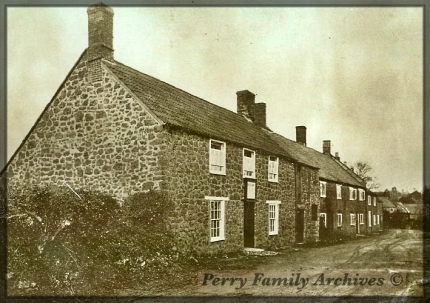
Location of annual carnival/ festival;
In 1877, Castle Inn, the host Henry Amor, his Inn decorated with an arch of evergreens and blue flags floating in the windows, the field by Kingstone turnpike the afternoon venue for its 171 members.
In 1896 held in a marquee near the New Inn.
In 1908 the barn opposite the New Inn.
In 1933 the festival and luncheon provided in a tent in a Fuzzy-close field, an orchard near the Inn. Fuzzy Close was plot number 94 on the old tithe map. That field is now the Playing Field.
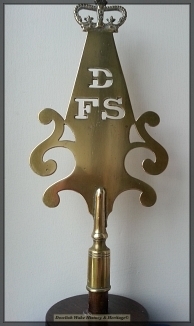
Transcribed newspaper articles
Below are half a dozen transcribed newspaper articles. During the hundred-odd years, a snapshot view of life in the village that the Friendly Society Club and the Labourers' Friend Society were in existence. Note these online articles are fairly hard to read without magnification, hence the transcriptions.Starting with an extract of a report of the first Labourers Friend Society annual dinner held at the George Hotel in Ilminster. Printed in the Western Flying Post, Yeovil and Sherbourne, 22nd October in 1832. Newspaper records -The British Newspaper Archive – Find my past online subscription website. findmypast.co.uk
1832
At a general public meeting in Ilminster on 9th October, an Association set up to improve the general conditions of the labouring classes and the community. The motion seconded by Rev. Hugh Speke, "that, to extend the benefits to the said society to the southern part of the country of Somerset, a District Association “The Ilminster District Labourers Friend Society”.
1847
Labourers Friend Society
Under the heading: 1847 - Live And Let Live – Under Royal Patronage. Announcing the forthcoming annual meeting on 13th October at the George Inn in Ilminster. Appearing in the Sherbourne Mercury 9th October 1847. Newspaper records -The British Newspaper Archive – Find my past online subscription website. findmypast.co.uk
Prizes
1st prize Best cultivation of Field garden allotment in the past year, in all respects according to the rules.
Bringing up creditably large families without Parochial Assistance within the last Seven Years. For long meritorious service, of not less than
ten years duration, with one master, up to the present time, such master having been for four years last past a member of the `Labourers’ Friend Society and the labourer claiming, not having before obtained a similar price from the Society. Prizes only were given to none but labourers of a good character, renting securely from year to year and cultivating by spade husbandry alone. Dowlish Wake has 38 field plots.
This next one; printed in the Western Gazette, 21st June in 1878. Under the heading: Local and District News: Somerset: [Spelling and punctuation more or less as printed] Newspaper records -The British Newspaper Archive – Find my past online subscription website. findmypast.co.uk
1878
Dowlish Wake
"Club Anniversary – The Dowlish Wake Friendly Society members, established in 1837, held their annual festival on Tuesday. The roll was called at the schoolroom soon after 9 o'clock by Mr Chas Rowswell, the secretary. The members [137 in number], headed by the Seavington Band, then visited the houses of the following gentlemen: Mr J W Wallbridge, Mr Huddy, and Mr J Duke. After being regaled with cider, they proceeded to the Parish Church, the Rev. B Speke preaching a sermon from the 19th verse of the 18thchapter of Genesis. Miss Alice Perry presided at the harmonium.
After the procession, reformed and marched to a tent on the lawn near the New Inn, where host Amor provided a capital spread. The Rev. B Speke filled the chair, and Mr J Duke, the vice-chair. Among those present were – Mr Huddy, senior. Mr Huddy, Junior. Mr Bower, Mr R Norton, Mr Dare, Ilminster. Mr Lumbard, Mr W Wallbridge, and Mr H Hull. After dinner, it was decided that the club festival shall henceforth be held on the first Tuesday after 16th May.
From the report we gather that the amount in the savings back is £184 19s 6d. The contributions amount to £120 10s 6d. During the year, £16 9s has been paid in sickness and £10 3s for funeral expenses. There are now 183 members in the Society." [Taken from online site findmypast.co.uk – The British newspaper archive] [Western Gazette 21st June 1878] [spelling and punctuation more or less as printed]
This next Newspaper article gives a flavour of the amusements provided. Taunton Courier and Western Advertiser – 30th May 1894, page 7. [spelling and punctuation more or less as printed] Newspaper records -The British Newspaper Archive – Find my past online subscription website. findmypast.co.uk
1894
Dowlish Wake
"Friendly Society. – The prosperous club in connection with this village held its anniversary festival on Tuesday, and everything passed off most successfully. The weather was fine but cold. The members met at the clubhouse, where the usual business was transacted, Mr Charles Rowswell, the energetic secretary presiding over the finances. The roll was called at ten o'clock, and 104 members answered to their names. Business over the members formed in procession and, led by the club banner, bearing the words "Let friendship reign," and the Dowlish Brass Band, under Bandmaster Fowler, proceeded to make their complimentary calls. Mr Bryant of Dowlish Mills was the first halting place, and here they were regaled with refreshments. On the way back, they called on Messrs. Huddy, who regaled them with some of the renowned Somerset beverage, and then proceeded to Wakehill Rectory, where the Rev. F H and Mrs Mules and the Rev. F Langdon joined the procession.”
The members then preceded in the direction of the Parish Church but first called on the Treasurer, Mr Duke, who hospitably entertained them. Church was afterwards attended. The Rev. F. Mules read the prayers, and an admirable sermon was preached by the Rev. F. Langdon, [locum tenens at Seavington] from part of the seventh verse of the 13th chapter of Acts, “A prudent Man”. Mrs Mules presided at the organ.
"After service, the members marched to a field kindly lent by Messrs. Huddy, where under one of King's Marquees, a good old fashioned Club dinner of roast beef and plum pudding awaited them, served by Hostess Amor, of the New Inn, with whom much sympathy is felt, as she buried her husband only the day previous."
The rev. F. H. Mules presided, and amongst those present were Mr Gribble Turner [Unionist candidate for South Somerset], Rev. Langdon, Messrs. A. and E. Huddy, J. J. Duke, V Duke, Dr Munden, and Mr Paull [Ilminster]. The customary toast-list was gone through, “Prosperity to the Society”, coupled with the names of the Treasurer and Secretary, being duly honoured.
The Secretary Mr Rowswell, read the financial statement:
Cash in the box 18th April 1894, £26 12s 10
Contributions during the year, £106 18s 3d
Fines, £21 7s
Surgeon, £10 6s
Honorary Subscriptions, £7 11s
Total; £172 15s 1d
Expenditure;
Including sick pay, £13 1s
Funeral expenses, £17 10s
Surgeon’s fees, £11 6d
Paid to Treasurer, £91
Expenses Club Day, £4 14s
Clerks salary, £3
The funds now in hand amount:
at £221 15s in the savings bank.
In the box £31 15s 1d.
Total, £253 10s 1d
The number of members now in the Society is 157. Mr Gribble Turner made an address dealing more particularly with friendly societies and old-age pensions.
"The health of the Chairman, Surgeon, and preacher of the day were also given, and enthusiastically responded to, and the thanks of the members were voted to Messrs Huddy for the use of the field.
"After dinner, the members and friends proceeded to join in the amusements so freely provided. In addition to dancing to the strains of the band, Townsend's roundabouts and high-fliers afforded much delectation to the holiday-makers, who came in from all parts of the district. The enjoyment was universal, and the day a very happy one from start to finish." [Taken from online findmypast.co.uk online subscription website – The British newspaper archive. Taunton Courier and Western Advertiser 30th May 1894]
This next transcribed Newspaper article from 1911 shows less members but still a well-organised club, enjoying the yearly procession following the pole bearer holding the brass topped emblem of Dowlish Wake aloft, on route to refreshments.! Western Gazette - June 1911. These online articles being fairly hard to read in their original online format.
[spelling and punctuation more or less as printed] Newspaper records -The British Newspaper Archive – Find my past online subscription website. findmypast.co.uk
1911
Dowlish Wake
“Friendly Society Festival – The annual festival of the Dowlish Wake Friendly Society took place on Tuesday in beautiful weather. The members met at their headquarters, the schoolroom, at 10-00 am, and 52 members answered to their names, the roll being called by the secretary. A procession was then formed, and a move made to Mr F Bryant's, the Mill, thence through the village back to Mr Sweetings. Then to Mr R T Walters, Wakehill, and back to Mr Broughtons, the farm. There was a good supply of refreshments at each place.
The procession was headed by the Dowlish Wake Brass Band [leader Mr E Fowler] and the Society's flag bearing the motto "Let friendship reign". After calling at the Rectory, the members proceeded to the church, where service was conducted by the Rector, whose father, the Rev J H Copleston, Rector of Offwell [Devon], preached the sermon. Miss Powell presided at the organ. After the service, the procession was reformed, and subsequently, dinner, excellently provided by Host R Manning of the New Inn, was served in a marquee which had been decorated by Messrs J Knights and J Board. Major Speke, of Jordan's, presided, and the vice-chair was occupied by Major J R Paull.
The company numbered 76, including, among others, Dr Munden, the Revs. Copleston {senior and junior], Messrs H Shepherd, R T Walter, J Broughton [senior and junior], J Sweeting, H J Fletcher, and the Secretary [Mr Chas Rowswell] The usual toast first was gone through, and during the proceedings, the Chairman made a few remarks concerning the Insurance Bill now before Parliament. He was afraid, he said, it would mean the breaking up of this old village club, but he trusted it would not, as he always looked forward to enjoying the day.
The report of the Treasurer and Clerk of the 74th years account showed the years income to be £85 11s 5d, and on the expenditure side, sick pay amounted to £18 12s: funeral expenses £17 10s: cash in the “Parr's Bank, £183 19s5d: cash in box £12 8s 5d. The number of members now in the Society is 73. Various amusements were provided, and the bells rang merry peals during the day."
Next, the Western Morning News reports on the Club Day speech held in 1925, the content of which highlights changing attitudes and expectations. [Friday 21st May 1925]
Newspaper records -The British Newspaper Archive – Find my past online subscription website. findmypast.co.uk
1925
PROSPEROUS AMERICA - INDUSTRIAL HARMONY ADVOCATED AT ILMINSTER
“In an address at the club-day dinner of the Dowlish Wake Friendly Society, Ilminster on Tuesday, Col. Speke, of Jordan’s, pointed to the prosperity of America, which, he said, was caused by harmony between the workmen and employers.”
"In New York," he said, "80 per cent of the houses belong to the occupiers. One working man in four goes to work in a motor car. We want to see you in motor cars like in America. We have plenty of natural resources: we have workmen as good as any in the world, but the Americans get on better with their employers. That has been our trouble - dissension between employer and workman."
Next, in 1937, the club celebrated its centenary.
Somerset County Herald 22nd May 1937, page 6.
Newspaper records -The British Newspaper Archive – Find my past online subscription website. findmypast.co.uk
1937
Dowlish Wake Society’s Centenary Celebration 100 years of useful work- Jollification at Annual Festival
“The centenary of the Dowlish Wake Club was celebrated on Tuesday when the festivities of the annual “club walk” were similar to those that have been followed down through the century. Practically every village for many miles around once possessed its club, and the festivals held yearly were looked to as part of the village life. One by one, however, they gradually become defunct – National Health Insurance being the main cause - until today, the Dowlish Wake Club is one of the very few that remain."
This last newspaper article from 1939 continues to put 'flesh on the bones'. [27th May 1939 Somerset Courier and Western Advertiser] - [spelling and punctuation more or less as printed] Newspaper records -The British Newspaper Archive – Find my past online subscription website. findmypast.co.uk
1939
DOWLISH WAKE CLUB FESTIVAL - 102ND ANNIVERSARY CELEBRATED - HON JOHN FOX STRANGWAYS PRESIDES AT DINNER
“The Hon, John Fox-Strangways [prospective Conservative candidate for the Yeovil division] presided at the dinner, which formed part of the day’s proceedings at the 102nd annual festival on Tuesday. The celebrations were on similar lines as have marked these festivals for a continuous run of over a century.
"The members carrying their blue ribbon bedecked staves, assembled at the schoolroom at 10am and following the roll call by the secretary, Mr George Fowler, a procession was formed, which was headed by the Kingsbury Episcopi Band and the Soc10 am's banner carried by Mr Richard Miller and his son, Mr Page Miller. The perambulation of the villages of Dowlish and Kingstone took place, and there was, as is customary, a church service. Conducted by the Rector [the Rev. C J Pring], who preached. Mr W A Gale was at the organ for the first part of the service, but he was obliged to leave to attend a funeral, and Miss Main officiated for the latter part."
During the club "walk", calls for refreshment were made at the Rectory and at the residences of Mr R W Savidge, Messrs. C and J Holland, Mr h S Gale, Mr A J Rowswell, Mr H R Sumption, Mrs Sweeting, and Mr R Gummer [Kingstone].
THE DINNER
The dinner was served in a marquee in a field at Kingstone, loaned by Mr Gummer. An excellent cold meal was well served by Mr and Mrs Bulgin. The Hon. John Fox-Strangways was supported at the head table by the Rev. Gerald G Hickman [vicar of Ilminster]. Rev C J Pring [Rector of Dowlish Wake]. Mr R W Savidge [Hon. Treasurer of the Society] Mr George E Fowler [secretary]. Mr J Wallace Carter [chief Liberal agent for the Yeovil Division]. Mr W A Gale. Mr W Wood. Mr R Gummer. And Mr F Scofield [Ilminster].
Proposing the toast of “The Bishops and Clergy and Ministers of all Denominations", Mr W A Gale said, as they went about the countryside and saw the beautiful churches of Somerset standing out, they often asked what they stood for. He would suggest that they stood for the religion of their forefathers and that religion must be theirs's today if they were to save the world from the catastrophe of another war.
Rev. G Hickman, responding, said he was quite certain in these days it was more necessary than ever they should fall back on what some to them had lost sight of for some years- their religion. All men in Christ were brothers, and this was their religion. The more the peoples of the world realised this, the less would they hear of war. Rev. C J Pring, who also responded, said he believed people today were beginning to realise more than ever that they could not do without the Church.
Mr J Wallace Carter, chief Liberal agent for the Yeovil Division, proposed "The Army, Navy and Air Forces". Having congratulated Dowlish Wake on keeping alive such a fine old institution as their friendly Society, he said he wanted them to realise that if it were not for HM Forces, it was improbable that they would be celebrating there that day. It was the strength of the Forces and the material strength behind them that kept those old institutions and their country going.
A SPLENDID RECORD
"The Dowlish Wake Friendly Society" was proposed by the Hon. John Fox-Strangways, and Mr R W Savidge, replying, referred to the fact that during the past year, the Society had lost Mr L Broughton, who for many years had been their Hon. Treasurer through his leaving the district. His departure had severed a long association of the Broughton family with the Society. For his brother, Mr John Broughton had also held the office of treasurer. It was, therefore, a strange thing not to have a member of the Broughton family taking part in their festivities. They deplored these changes, but they were inevitable. When he [Mr Savidge] was asked to succeed Mr L Broughton as their treasurer, he was pleased to accept office with a Society that has such a splendid record. It was gratifying to know that after 100 years, the Society was going strong and carrying out the original purpose for which it was formed – to help one another in times of need. It was an admirable object, and long might that spirit continue.
Mr G E Fowler, who also replied, spoke of his 20 years in the position of secretary and stated he had seen a great many changes. The club was, however, still in a healthy position, with a membership of 79. He always thought the Club was not only of benefit to the village but to the neighbourhood. They must, however, understand that they could not get something for nothing, and that they must pay their contributions, to get their benefits. He was proud to be the secretary of such an old established Society, and as long as he had the pleasure of filling the position, he would do his best to help it on. He hoped all the members would do the same. What he wanted was to see the membership reach the hundred mark.
CHAIRMAN’S POLITICAL CAREER
Rev. C J Pring, proposing the toast of “The Chairman”, said they owed a debt of gratitude to the Hon. John Fox-Strangways as he had filled the position at a moment’s notice. They were expecting one day that their Chairman would be the successor of the present Member of Parliament Major Sir George Davies, who was retiring at the end of the present Parliament. Mr Fox-Strangways was, therefore, starting out on a political career, and he [the speaker] was sure that, in the future, they would wish him every success in what he could do for them and the country generally, in the important duties that he might be called upon to fulfil. [Hear, hear.]
The Hon. John Fox-Strangways, replying, said as they had heard he was occupying the chair that day under rather a false pretence. Mr Hobhouse being unable to come at the last moment. He must thank them for the way in which they had honoured the toast to him. He would like to congratulate them on the numbers attending their Club festival dinner. There were a few of the members away. Looking at the balance sheet, he saw the fines were a very small item. He would suggest that those who did not turn up to that very enjoyable meal should be fined double the usual amount or should be made to pay for what they had just eaten and drank. [ Laughter]. He would wish to congratulate them upon the many years that the Society had been running. It was two years ago they held their centenary, and he hoped they would thrive for many years yet. In these days when people could move about much quicker from village to village and town to town, the trend was that these friendly Societies might fall by the wayside. It did however see to him, from the representative gathering they had there that day and the good balance sheet before them, that the Society at Dowlish Wake was going to last for a very long time to come. [Hear hear]
Mr R W Savidge gave the toast of “The Host and Hostess, and the Band”. There were the usual amusements in the field, including skittling, and the days proceedings ended with a dance, in aid of the Dowlish Wake Sports Club. The amusements in the Club Field included: skittles, in charge of Messrs. E Fowler, PG Darke and A W J Symes and prize winners were: -gents-1, Mr W Welch; 2, Mr T Perry. Ladies-1, Mrs R James. Touches were rung on the bells in the tower of Dowlish Wake Church during the day in honour of the festival."
Further reading and sources:
The Dowlish Wake Friendly Society 1837-1955 club records are held at;
The National Archives at Kew. Collection FS 15/1500 – Registry of Friendly Societies
History
The Labourers Friend Society. An Act for the benefit of Friendly Societies 1793. Wikipedia
Book - West Country friendly societies: an account of village benefit clubs and their brass pole heads. Author Margaret D Fuller. Copies in Somerset LibrariesWest.
Online article - Abstract of the Bill for the encouragement and relief of the Members of Friendly Societies. “promoting the happiness of individuals and at the same time diminishing the public burthens”. JSTOR digital library. Journal Article; Friendly Societies. 1886-1994. jstor.org
Newspaper records -The British Newspaper Archive – Find my past online subscription website. findmypast.co.uk
Also available at Somerset Heritage Centre in Taunton
29th December 1834 Sherbourne Mercury Speke allocated land - newspaper articles Labourers Friend allotment club;
14th November 1836 Sherbourne Mercury DWLS Annual dinner - newspaper articles Labourers Friend allotment club;
22nd October in 1832 Western Flying post, Yeovil and Sherbourne. Transcribed newspaper articles
9th October 1847 in Sherbourne Mercury. Transcribed newspaper articles
23rd June 1865, The Western Gazette - newspaper articles – DWFS annual dinner
21st June 1878 The Weston Gazette Transcribed newspaper articles
16th October 1889, Taunton Courier- DWLS – ending of the Labourers club
27th May 1893 Chard and Ilminster News & [Dowlish Wake Band formed]
30th May 1894 Taunton Courier and Western Advertiser Transcribed newspaper articles
23rd May 1896 Chard & Ilminster News [kiss in the circle & dancing]
23rd May 1903, Chard and Ilminster News DWFS – over 200 members
June 1911 Western Gazette Transcribed newspaper articles
12th June 1914 The Western Chronicle – [DW band final year?]
8th April 1914 Donyatt - Historian Collinson writing in 1791, from a talk by Mr C Tite, published in The Courier, ‘Somerset Village Clubs’
5th August 1914 - The Courier – Ilminster sports day
21st May 1925 Western Morning News Transcribed newspaper articles
21st May 1937 Somerset County Herald Transcribed newspaper articles
27th May 1939 Somerset Courier and Western Advertiser Transcribed newspaper articles
28th December 2005 Chard and Ilminster News – [50 years ago DW Friendly Society closes - 1955]
History of Friendly Society Law in the British Islands Somerset HER
Book-1987 Somerset Scrapbook Bob & Jacqueline Patten
History of these clubs etc.- M Fuller, West-Country Friendly Socs. 84–6, 112, 135, 151. [British History Online]
Bob and Jacqueline Patten English Folk Music Collection - parts 1-12 - The collection includes some 6483 items some of which can be heard today. Recording date May 1979 Interviewer Bob Patten Village communities [British Library Sound Archive - sounds.bl.uk/World-and-traditional-music/Bob-and-Jacqueline-Patten-Collection]
The fraternity of female friendly societies. Open Research Online. oro.open.ac.uk [Asbourne Friendly Society-page 202]
Ilminster Female Friendly Society – Chard and Ilminster News -27 May 1893 & 30th May 1896
Winsham and Coombe St Nicholas both had male and female members. Western Chronicle 25th May 1984
Trinity Tuesday-Whit Tuesday, in 1858 The Dowlish Wake Friendly Society club day was on Tuesday, 1st June, late due to clash in dates with Chard Fair and the Fair on Whitedown.
John Symes Cuff - The original document is at their archive centre in Taunton. Catalogue no A/AGB/1. The entry reads: [Wilsons] diary, possibly belonging to a farm in Chard/Ilminster area 1858
Charles Russell; from a diary of John Russell, son of Charles Russell. Three Chard Lives, part 3. Edited by Len Hoskins and produced by Chard History Group 2006.
Funfair. Richard Townsends Travelling Fair
Morris Dancing - somersetmorris.org.uk
Brass Pole heads - Taunton Museum
The Museum of English Rural Life – housed at the University of Reading -RG1 5E. Also, online database merl.reading.ac.uk Two Collections: The Shickle Collection of [Rev Charles William Shickle [1841-1927]. & The Charles Forster Collection.
Banners. Explanation article sees Banners of the British Labour Movement. bbc.co.uk Banners were made by George Tutill of London, costing around £20. The banners oil painted, double-sided cloth with silk lettering.
Dowlish Wake Band – village records mention a Mr Tutcher started the Dowlish brass band.
